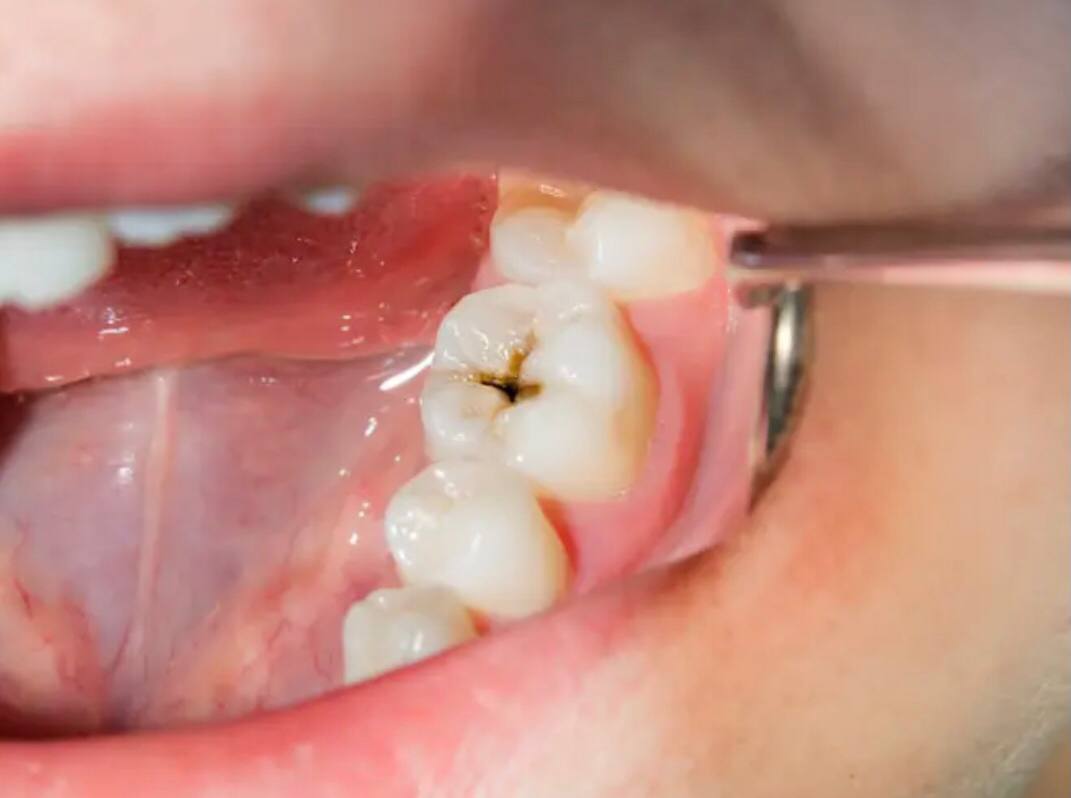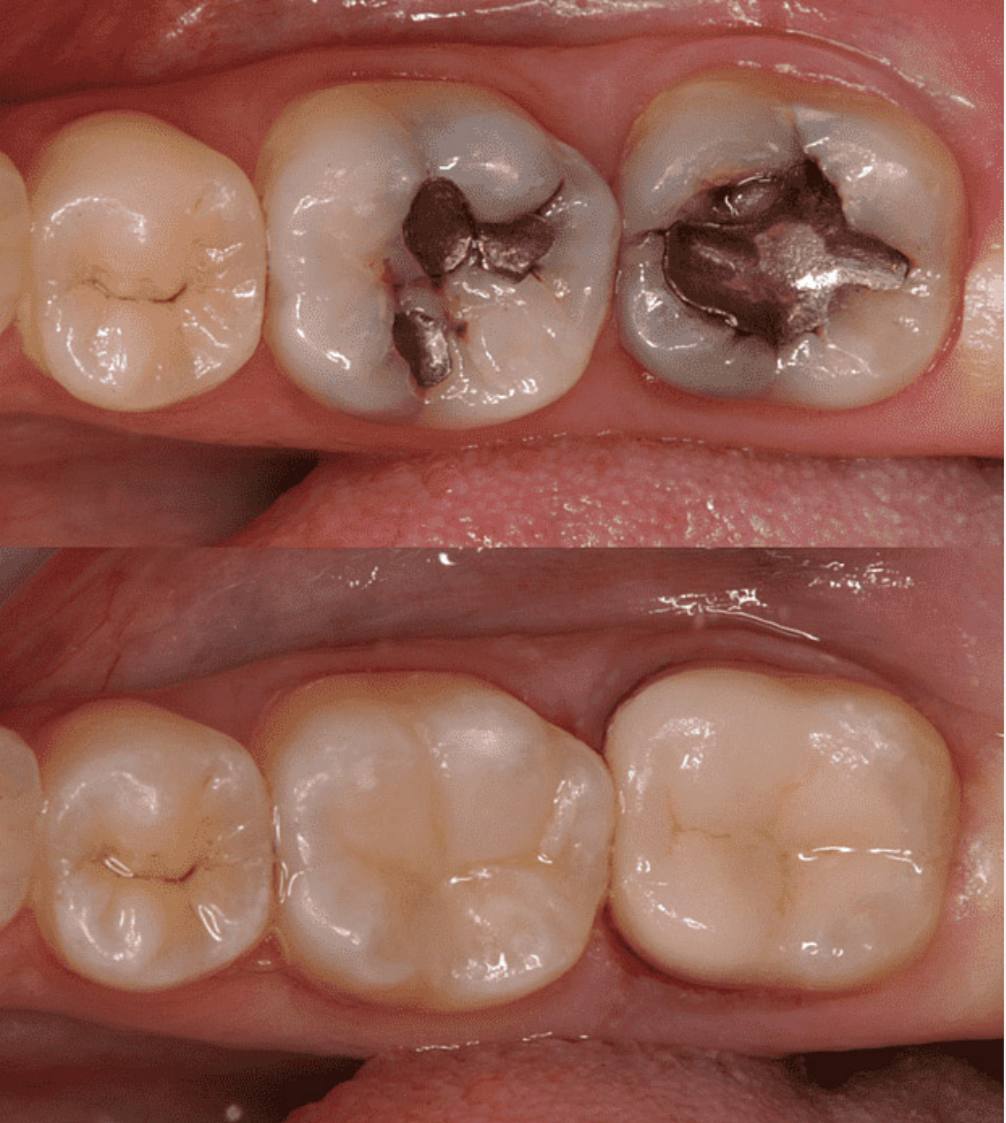Repair
When do teeth need restoration?
In general, dental decay is categorized into seven numbered stages:
- Healthy, intact tooth
- First visible changes in enamel
- Clear changes in the enamel surface
- Enamel destruction without involvement of the dentin
- Involvement of dentin without cavity formation
- Dentin involvement with cavity formation
- Extensive decay with visible dentin
In general, restoration is needed from stage 5 onward. However, for stages 3 and 4, the dentist will decide whether restoration is necessary based on the condition of the decay—whether it is active and progressing or inactive.

Materials used for dental restoration (filling) and their characteristics:
Amalgam for Dental Restoration:
Amalgam is a metallic alloy, non-tooth colored (silver-colored), primarily made of mercury, silver, tin, and copper. Different manufacturers use varying percentages of these elements. Mercury makes up nearly fifty percent of the alloy.
Filling with White Materials (Composite):
Dental composites are a combination of organic components (resin matrix) and inorganic components (fillers). Composites have a paste-like consistency and are placed on the tooth using specialized tools. They are hardened with light from a curing light device. These materials also harden over time when exposed to natural light, so they are manufactured and supplied in light-resistant packages.
Disadvantages of Composite:
- It has a shorter lifespan compared to amalgam.
- Composite restorations require more time compared to amalgam.
- Due to its lower compressive strength, composite may chip or experience edge fractures in areas under pressure.
- The cost of composite fillings is higher than that of amalgam.
Post Filling Care for Teeth
After getting a dental filling, follow these care instructions:
- Generally, you can eat almost immediately after the treatment. However, if ceramic or composite material was used for the filling, avoid consuming colored foods and drinks for about two hours.
- It’s important not to eat with the side of your mouth that was numbed if you had local anesthesia, as you may accidentally bite your tongue or lip.
- Be cautious with hot drinks, as they can burn the inner tissues of your mouth.

Are Dental Filling Materials Allergenic?
According to the American Dental Association (ADA), only a small number of people experience allergic reactions to dental fillings. An allergy is an immune system response to a foreign substance. Individuals who are sensitive to allergens may experience a localized reaction. Allergic reactions to silver-containing fillings, including amalgam, are rare. To date, fewer than 100 such reactions have been reported.
Our Services for Patients at the Clinic
FAQ
What services are offered at Dr. Hamed Keramat's Specialized Dental Clinic?
Could you provide the clinic's address and how to get there?
How can I know the exact cost of dental services before treatment?
What are the working hours of Dr. Hamed Keramat Specialized clinic?
Dr. Hamed Keramat specialized clinic is open on Saturdays, Sundays, Mondays, and Wednesdays in the afternoon shift, and on Tuesdays and Sundays in the morning shift to serve you, our esteemed patients.
How can I book an appointment at Dr. Hamed Keramat specialized clinic?
To book an appointment at Dr. Hamed Keramat specialized clinic, simply call 88694120 or fill out the contact form on Dr. Keramat’s clinic website, and our experts will get in touch with you as soon as possible.
